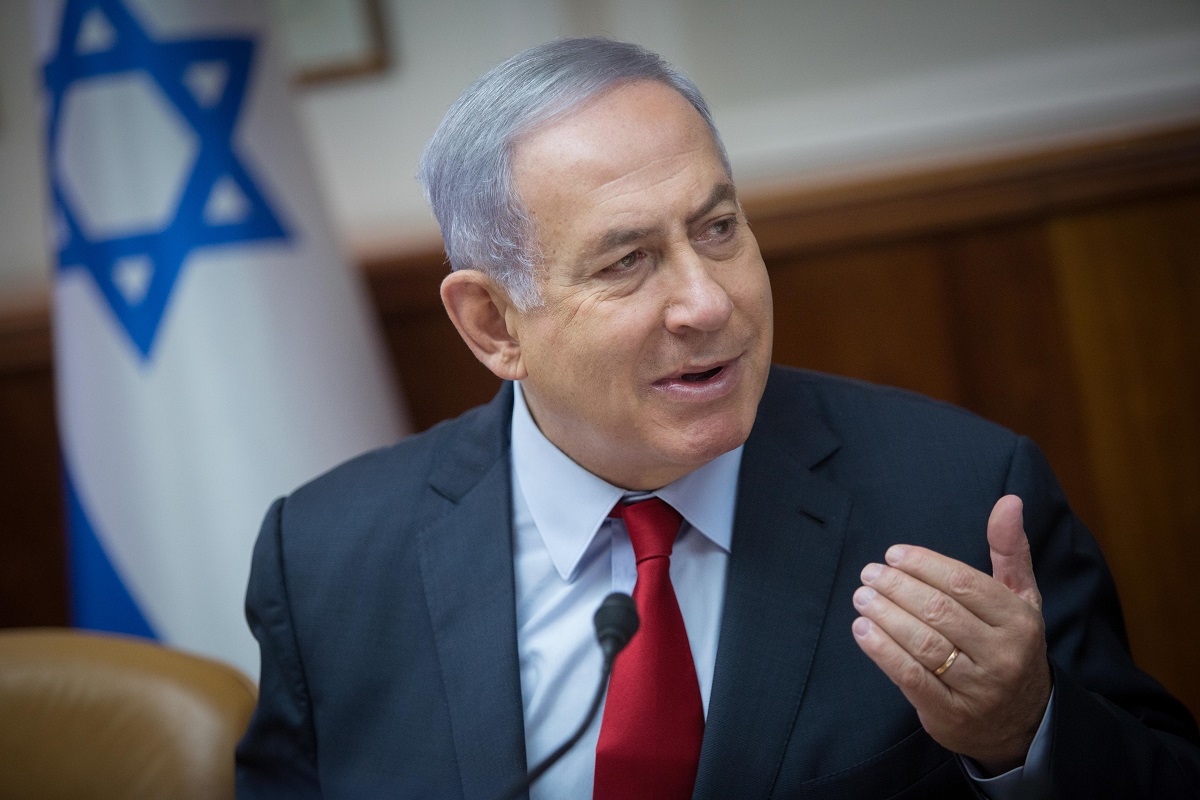Police entered JU as stalemate continues
A meeting to resolve the stalemate in the campus could not be held with the students protesting against the presence of Prof Om Prakash Mishra of International Relations (IR) department, this afternoon.
The monarchy, which is in the eye of the storm after being asked by students to restrict itself to a constitutional role, appears to be sympathetic to a push-back as royalists were seen posing with the King before announcing plans to stage counter-protests.

Israeli Prime Minister Benjamin Netanyahu (Photo: IANS)
It is perhaps a sign of the angry and turbulent times we live in that more and more countries are being rocked by protests and demonstrations, many of these street actions being in support of regime change and greater freedoms. In Thailand, protests are on the verge of taking an ugly turn with allegations that strong-arm methods were used on three pro-democracy activists, including one who was subjected to a chokehold. All three are in hospital.
The monarchy, which is in the eye of the storm after being asked by students to restrict itself to a constitutional role, appears to be sympathetic to a push-back as royalists were seen posing with the King before announcing plans to stage counter-protests.
Advertisement
These are worrying signs, and while there appears to be no let-up in the intensity of youth protests targeting Thailand’s Prime Minister and the monarchy, the strain is clearly telling on the country’s social fabric. Further afield, protests in Belarus against the authoritarian regime of Alexander Lukashenko too appear to be reaching a decisive point.
Advertisement
On Friday, the Belarussian strongman was reported to have told his generals to “take no prisoners” in the grimmest warning yet after months of protests following an election that many believe was rigged. He was reported to have said, “We will take no prisoners. If someone touches a serviceman — I’ve already spoken to generals — he should leave without his hands at the very least. That’s it. We have nowhere to retreat, and we are not going to retreat.”
Backed by Moscow, Lukashenko has closed his country’s borders with Poland, Lithuania, Latvia and Ukraine, leaving only the border with Russia open. Protests have taken place every week, with thousands marching on the streets of Minsk to demand that Lukashenko step down.
In Lagos, Nigeria, young people have been protesting police brutality and several dozen have already died in clashes with authority. The protests began less than four weeks ago, with the demand to scrap a notoriously brutal police unit named the Special Anti-Robbery Squad. While the unit was disbanded, the protestors have now demanded greater reforms in the manner the country is governed.
Following the deaths of protestors, buildings were torched, shopping centres were looted, and prisons were attacked. Israel has seen regular protests targeting Prime Minister Benjamin Netanyahu and many parts of the Muslim world now are being rocked by protests at what are described as Islamophobic statements of French President Emmanuel Macron following the beheading of a teacher. And there are clear signs that the outcome of the US election this week may see a violent backlash.
If there is a common thread running through these protests, it is that they are largely driven by young people and fuelled by social media. And, of course, they come against the backdrop of a dreaded disease that has brought fragile economies to their knees while severely impacting even those that may seem better off. While it is a fact that historically only a few protest movements, even those that appear to succeed, achieve all that they set out to, the challenge of dealing with them in these difficult times is specially daunting. The world is sitting on a powder keg.
Advertisement